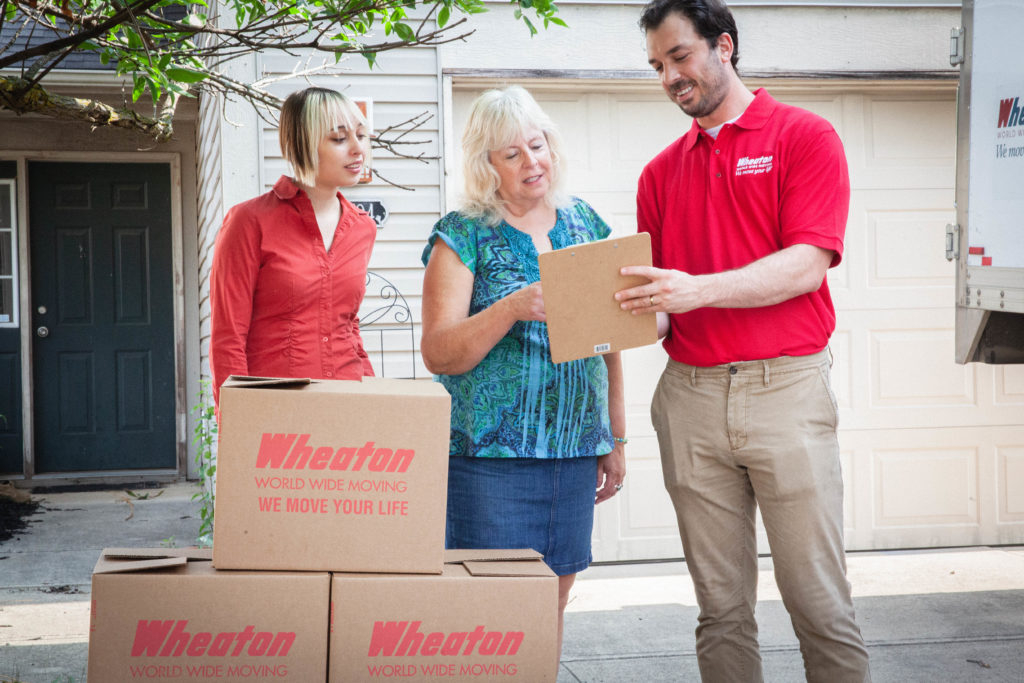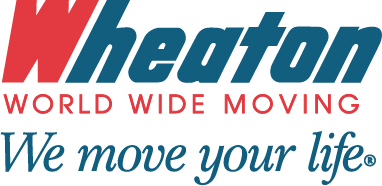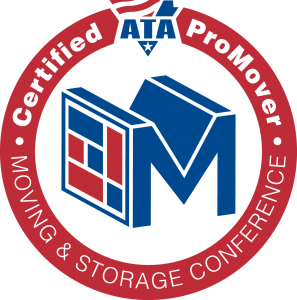Moving during retirement involves some special considerations. It’s important to examine the logistics, financial implications, and labor involved in moving so that you can make the process as straightforward as possible.

Moving Logistics: Downsizing and Decluttering
Moving isn’t just about relocating to a new property. It’s also about assessing what you have, what you want to take, and what you can discard.
For many retirees, moving means downsizing and relocating to a smaller, more manageable property. Downsizing can help simplify day-to-day living, but it also means you’ll need to carefully consider which items to take when you move. You’ll likely need to do a thorough decluttering before packing, so you don’t end up moving things you don’t have space for.
The Importance of Decluttering
Going through a decluttering process can be especially important if you’ve been in the same home for years, as many people tend to accumulate an extensive collection of household items, knick-knacks, keepsakes, and more. It’s easy to end up with duplicate items and storage areas full of things you rarely use.
Decluttering before a move—especially if you’re downsizing—simplifies the moving process by reducing the number of items you need to transport. Rather than dealing with excess items once you’re in your new space, you can get rid of unnecessary things ahead of time, allowing you to pack, move, and unpack fewer boxes.
Tips for Effective Decluttering
It’s often helpful to start decluttering well before you plan to move. This process can be time-consuming, requiring significant energy and focus, so it’s best to complete it before dealing with other moving logistics.
Some tips to make your decluttering as smooth as possible include:
- Declutter one room at a time and commit to finishing that space before moving on to a new one
- Sort as you go: divide items into categories like keep, give to family, donate, sell, and throw away
- Take your categories into action once a room is complete—get rid of what you’re not keeping and pack what you can
- Allow time for emotional processing—going through items that have been part of your life for years can bring up a lot of feelings and memories, and it’s normal to need some time to reflect as you go through your belongings.
Once you’ve decluttered and discarded as much as you can, you’ll be ready to pack up and make your new place your own without immediately overfilling it. You’ll have a solid handle on what you have and can make your move with intention.
Consider Financial Implications
Retirees have varied financial situations, income sources, and living costs. Moving can shake up all of these elements, so it can be helpful to consult a financial advisor who specializes in retirement management before you move.
Some financial considerations to take into account when moving are:
- Differences in housing, utility, and cost of living expenses between your old and new locations
- Tax implications of selling your property and/or moving to a location with a different tax structure
- One-time moving expenses and overall moving budget
Working with a financial advisor with expertise in retirement management can help you make informed decisions that limit your financial burden and take advantage of financial benefits. Consulting with a professional will also help you understand and plan for any significant financial changes you’ll need to take into account when you move to your new location.
Delegate Labor and Tasks
Moving is hard work. Enlisting others to help with both organizational and manual labor tasks is often the most effective way to ensure a smooth and efficient moving process.
The first professional to consider hiring is a Senior Move Manager. These are moving experts who specialize in helping retirees and seniors relocate. Typically, they can explain, organize, and execute the whole moving process, including:
- Decluttering, organizing, and downsizing
- Designing a streamlined layout of furniture and household items using the floor plan of your new space
- Estate dispersal
- Document shredding
- Packing, moving, and unpacking
Working with a Senior Move Manager allows you to provide the necessary information, preferences, and priorities for your move. Your move manager then makes and executes a plan based on your needs.
Whether or not you work with a Senior Move Manager, it’s advisable to enlist help to complete the packing, moving, and unpacking process. Your health and well-being are a priority, and moving bulky items, heavy furniture, and numerous boxes is likely not the best way to take care of yourself. You can hire a professional moving company or turn to family and friends for assistance.
Before moving, you may also want to hire a professional decluttering and organizing service. It can be challenging to deal with the contents of your entire home on your own. Having a professional to help you make mindful decisions about what to keep and what to get rid of—and then help make that happen—can save you significant time, effort, and emotional bandwidth.
For advice or services from a professional moving company in Burlington or the surrounding area, contact Chase Moving and Storage. We have over 100 years of experience providing expert moving services for retirees, families, and businesses. We’re a family-owned company dedicated to providing outstanding customer care and exceptional moving assistance from start to finish. Chase Moving and Storage—THE MOST TRUSTED MOVERS SINCE 1908.






